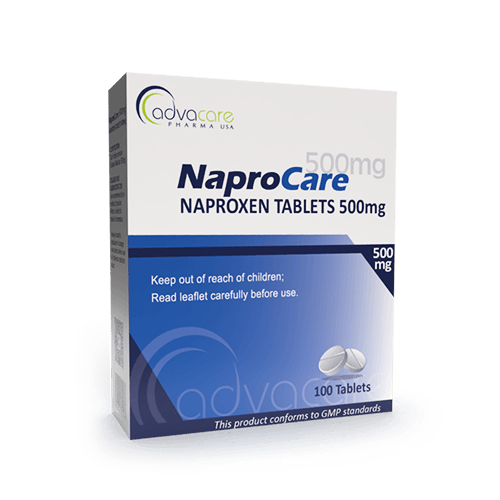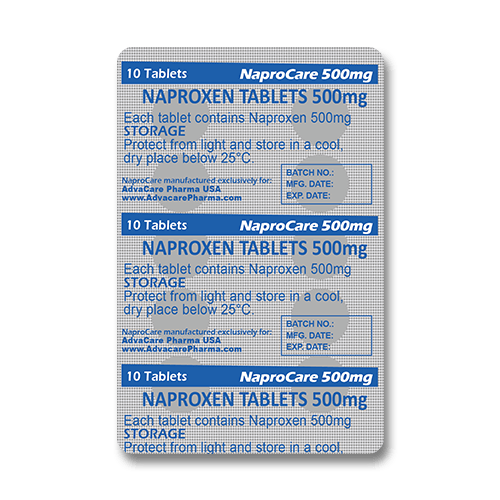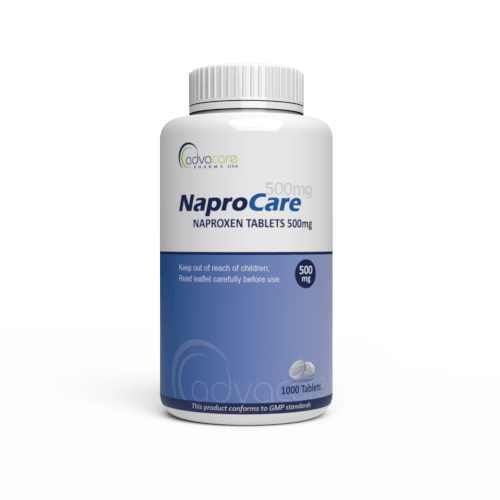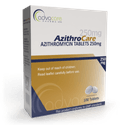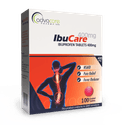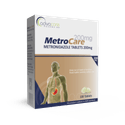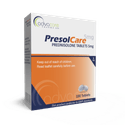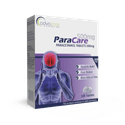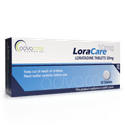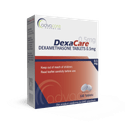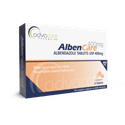- Home›
- Pharmaceuticals›
- Pharmaceutical Tablets›
- Naproxen Tablets
Naproxen Tablets
Dosage
Packaging
What is Naproxen?
Active Ingredients: Naproxen
Naproxen Tablets are a nonsteroidal anti-inflammatory drug (NSAID) that is used for the short-term relief of mild to moderate pain and inflammation. It can be used to treat symptoms associated with many conditions, such as rheumatoid arthritis, dysmenorrhea, gout, headache, backache, toothache, and tendinitis.
Naproxen has antipyretic, analgesic, and anti-inflammatory properties. It works by inhibiting cyclooxygenase 1 and 2 (COX-1 and COX-2). COX-2 inhibition prevents the synthesis of prostaglandins, which are molecules that mediate inflammatory responses by sensitizing pain receptors.
Their reduced action produces naproxen’s beneficial analgesic and anti-inflammatory effects.
AdvaCare is a GMP-certified producer of Naproxen Tablets. This medication is manufactured in our factories in China, India, and the USA. We routinely inspect our production facilities to ensure our products meet quality and safety standards.
Why are we a top Naproxen manufacturer?
AdvaCare Pharma is a trusted Naproxen manufacturer committed to providing quality-assured, cost-effective pharmaceuticals for an ever-changing global market. Manufacturing a wide range of 200+ pharmaceutical products in tablet form, we ensure that all of our oral solid dosage forms adhere to stringent GMP standards.
We operate according to a unique "vested supplier-distributor relationship" business model, in which we tie our success in a market to that of our distributor. Such a model facilitates a closer relationship by working together to achieve pre-defined goals for market entry and expansion. As a Naproxen manufacturer and global supplier, we implement unique strategies to ensure successful distribution.
Uses
What is Naproxen used for?
Naproxen is indicated to relieve the signs and symptoms associated with arthritis, ankylosing spondylitis, juvenile arthritis, tendonitis, bursitis, and, occasionally, acute gout. It is also used to manage pain and menstrual cramps (dysmenorrhea).
How are Naproxen Tablets used?
This medication is intended to be taken orally. They should be taken with a glass of water and can be taken with or without food. To minimize stomach irritation, they can be taken with milk, food, or antacids that contain aluminum or magnesium.
What dose should be taken and for how long?
Recommended dosage of Naproxen may vary based on different medical conditions and age.
Adults Dosage may vary based on different medical indications:
- For the relief of symptoms associated with arthritis and ankylosing spondylitis, the recommended dose is between 225 and 550mg, taken twice a day. The treatment should not exceed doses of 1500mg/day or 6 months duration.
- For the treatment of mild to moderate acute pain, tendonitis, and bursitis, the recommended dose is 450 or 500mg, taken once, followed by 225 or 250mg, taken every 6 to 8 hours. The maximum daily dose should not exceed 1250mg. Treatment should be discontinued upon symptom relief.
Children (12 - 17 years; ≥ 50kg) Recommended dosage for children may vary based on different medical conditions:
- For the relief of symptoms associated with juvenile arthritis, the recommended dose is 5mg/kg, taken twice a day. Treatment should not exceed doses of 500mg/day or 6 months duration.
- For the treatment of mild to moderate pain, the recommended dose is 450mg, taken once, followed by 225 or 250mg, taken every 8 to 12 hours. The maximum daily dose should not exceed 650mg. Treatment should be discontinued upon symptom relief.
The lowest effective dose and the shortest treatment duration possible should be used. The dosage is based on medical condition, response to treatment, age, and weight. Refer to a doctor or pharmacist for guidelines on dosage. Do not exceed what they advise.
Who can use Naproxen?
Naproxen can be administered to adults and children (≥ 12 years), but caution is advised for specific groups of patients.
Pregnant NSAID use at 20 weeks gestation or later may cause fetal renal dysfunction or impairment, heart problems, or lower amniotic fluid. NSAID use at 30 weeks gestation or later may cause adverse fetal events, such as premature closure of the fetal ductus arteriosus, oligohydramnios, and gastrointestinal (GI) or intracranial bleeding.
Naproxen use past 30 weeks of pregnancy is not recommended. Naproxen administration during childbirth is not recommended, as it may adversely affect fetal circulation and inhibit uterine contractions, which may increase the risk of uterine hemorrhage.
Those who are trying to get pregnant should avoid naproxen, as it can delay ovulation and reversibly impact fertility.
Nursing Naproxen is excreted in small amounts in human milk. Limited data has not found evidence of adverse infant effects.
Nursing while taking naproxen may be safe, but other medications may be preferred. If deemed medically necessary, the potential patient benefits and infant risks should be carefully considered.
Pediatric The recommendations for dosage adjustments for children are as follows:
- In pediatric patients < 2 years old, naproxen’s safety and efficacy have not been established.
- In pediatric patients 2-11 years old, non-prescription usage of naproxen is not recommended. Prescription dosages should not exceed 10mg/kg/day. Naproxen Tablets are not appropriate for dosing children weighing < 25kg.
Geriatric Studies have found that older patients (≥ 65 years old) experience increased free fractions of naproxen, however, the total plasma concentrations were similar to those seen in younger adults.
Due to the increased risk of renal toxicity and adverse GI effects in older adults, dose reduction and organ function monitoring should be considered.
Other warnings
In patients with hepatic insufficiency, dosage adjustments may be necessary. Cases of rare, but severe, hepatic reactions, including liver necrosis, jaundice, fulminant hepatitis, and liver failure, some of which resulted in fatalities, have been reported with NSAID use.
Patients with potential signs or symptoms of liver dysfunction or abnormal liver enzyme (ALT or AST) levels should be evaluated for hepatic toxicity. Naproxen should be discontinued if there are signs of liver disease or other systemic symptoms (eosinophilia, rash).
In patients with mild renal insufficiency, dosage adjustments may be necessary. Naproxen use in moderate to severe renal insufficiency is not recommended. Long-term NSAID use has resulted in renal papillary necrosis and other renal injury in some patients.
Patients with renal dysfunction, heart failure, dehydration, hypovolemia, liver dysfunction, those who are taking diuretics and ACE inhibitors, or those who are older are at an increased risk of renal toxicity resulting from dose-dependent decreases in prostaglandin formation and renal blood flow. These toxic renal effects are usually reversible after NSAID discontinuation.
Clinical studies of various NSAIDs have shown an increased risk of serious cardiovascular (CV) thrombotic events, including myocardial infarction and stroke, which can be fatal. Naproxen can worsen heart failure and hypertension, which may increase the risk of adverse CV events, and NSAID trials have shown evidence of an approximate doubling in heart failure hospitalizations compared to placebo-treated groups.
To minimize the potential risk, the lowest effective dose should be used for the shortest duration possible. There is no evidence that concomitant use of aspirin can mitigate these risks and its use with naproxen increases the risk of adverse GI events. Naproxen should be administered with caution in patients with heart failure, hypertension, arrhythmias, other CV dysfunction, renal disease, or fluid retention.
NSAIDs should not be used after coronary artery bypass graft or in patients presenting or hospitalized with ST-elevation myocardial infarction (STEMI).
NSAIDs, including naproxen, can cause serious and potentially life-threatening GI adverse events, including inflammation, bleeding, ulceration, and perforation of the esophagus, stomach, small intestine, or large intestine. Those with a longer duration of NSAID treatment, who are concomitantly using oral corticosteroids, aspirin, or anticoagulants, and who have a history of liver disease, peptic ulcers, GI bleeding, or bleeding disorders are at a much greater risk for developing these conditions. Smoking, alcohol use, older age, and poor overall health can also increase the risk of GI bleeding. These serious adverse events can occur at any time, with or without warning symptoms.
The lowest effective dose should be used for the shortest duration possible to minimize the risk of adverse GI events. Alternative therapy should be considered for high-risk populations.
Anaphylactic reactions that require immediate medical attention and are potentially fatal have occurred in patients taking NSAIDs. Naproxen hypersensitivity can cause adverse skin events, such as exfoliative dermatitis, Stevens-Johnson Syndrome (SJS), and toxic epidermal necrolysis (TEN), some of which can be fatal and can occur with or without warning. Naproxen should be discontinued at the first sign of skin rash or other hypersensitivity reactions.
Side Effects
As with all pharmaceuticals, some unwanted effects can occur from the use of Naproxen Tablets.
Common side effects include, but may not be limited to:
- constipation
- headache
- dizziness
- drowsiness
- ringing in the ears or hearing problems
Seek medical attention if the following develop:
- signs of an allergic reaction (sneezing, runny or stuffy nose, wheezing or trouble breathing, hives, swelling of your face, lips, tongue, or throat)
- new rash that is not allergy-related
- vision changes
- jaundice (yellowing of the skin or eyes)
- flu-like symptoms
- decreased urination
- confusion
- bloody or tarry stools
For a comprehensive understanding of all potential side effects, consult a medical professional.
If any symptoms persist or worsen, or you notice any other symptoms, please call your doctor immediately.
Precautions
Do NOT use Naproxen Tablets if you:
- You are allergic to naproxen or any of the ingredients.
- You have had an allergic reaction to aspirin or an NSAID.
- You have heart disease, high blood pressure or high cholesterol.
- You have diabetes or if you smoke.
- You have a history of heart attack, stroke, blood clots, stomach ulcers or bleeding, asthma, liver or kidney disease or fluid retention.
- You are pregnant, planning to become pregnant, or are breastfeeding.
- You use antidepressants, lithium, methotrexate, probenecid, or blood thinners.
- You use heart or blood pressure medication, including diuretics.
- You use steroid medicines.
Before treatment, consult your doctor regarding any medications you are taking to address potential drug interactions.
This medication may not be suitable for people with certain conditions, so it is important to consult with a doctor if you have any health conditions.
References
Evaluation of the efficacy and safety of etoricoxib compared with naproxen in two, 138-week randomised studies of patients with osteoarthritis
This study aimed to evaluate the effectiveness and safety of etoricoxib 60mg once daily and naproxen 500mg twice daily over a 138-week period in patients with osteoarthritis (OA).
Two 1-year randomized, double-blind, parallel-group studies (consisting of a 12-week part I and a 40-week part II), followed by an 86-week extension, were conducted at 80 clinical centers across 19 countries.
Patients who initially received a placebo in part I were switched to either etoricoxib or naproxen (at a 1:1 ratio) in part II and throughout the extension. Patients initially treated with etoricoxib or naproxen continued with the same treatment for the entire duration of the studies.
A total of 997 patients enrolled in the case studies, with 615 completing them. Among these patients, 463 entered the extension phase. Of those, 161 and 152 patients in the etoricoxib and naproxen groups, respectively, completed 138 weeks of treatment. Both etoricoxib and naproxen had consistent efficacy over the 138-week treatment period. The WOMAC pain assessments for etoricoxib and naproxen were 67 and 67mm (baseline), 28 and 29mm (1 year), and 34 and 33mm (138 weeks), respectively.
The conclusion is that both etoricoxib and naproxen have good clinical efficacy in the long-term treatment of OA, with both medications being well tolerated by patients.
You might be interested in...
Why AdvaCare Pharma?
As an industry leader, we are aware of our responsibility to provide affordable and sustainable solutions to improve healthcare worldwide.
